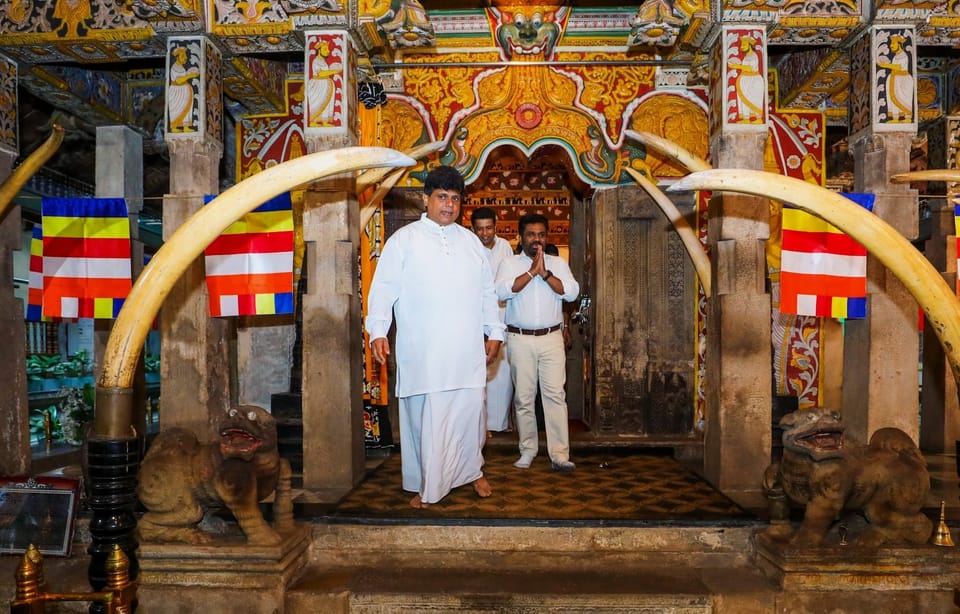
This evening, 263 electors will gather in Kandy to select the next Diyawadana Nilame — an office hailing from the era of the kings. The incumbent Diyawadana Nilame, Pradeep Nilanga Dela, and six other hopefuls will vie for the ten-year term.
As the tooth relic’s lay custodian, the Diyawadana Nilame manages matters temporal. He receives national leaders, handles temple finances, hosts foreign delegates, and periodically exhibits the tooth relic to the public.
The expositions usually happen at the president’s request, most recently after President Anura Kumara Dissanayake’s victory. This drew crowds in the millions, with devotees waiting in line for days to worship the relic. Prior to that, the relic was last exhibited during President Mahinda Rajapaksa’s first term — months before the civil war’s final days in 2009.
The power to bestow, in some part, legitimacy on a leader has also meant the power to withhold it. In 2022, the monks denied President Ranil Wickremesinghe’s request for an exposition. During the 1989 insurrections, the JVP attempted to steal the relic, according to a former Diyawadana Nilame.
Technically any lay person can contest for the position. However, Chamikara Pilapitiya, a writer on the Kandyan era, notes that the position of Diyawadanna Nilame requires extensive experience, especially deep working knowledge of the business of the gods. For instance, Dela has previously served as the Basnayake Nilame at both the Sabaragamuwa Maha Saman Devalaya and the Ruhunu Kataragama Devalaya. Two hopefuls for this year’s election are also Basnayake Nilames.
One of them — the Basnayake Nilame of the Shri Kataragama Devale Daminda Bandara Udurawana — says that inherited experiences and knowledge are important to carry out the duties in the Diyawadanna Nilame role. Udurawana’s grandfather has also served in the position.
The election is as important as the tooth relic, he adds, describing the relic’s lay custodian as the “fifth citizen of the country.”
Candidates have been campaigning for weeks, attending television interviews and holding press conferences. Udurawana, for instance, has promised a hospital for the clergy while Dela has detailed his contributions to the Maligawa during his previous two terms.
Other hopefuls include a university lecturer, science graduate, businessman, and a retired army colonel.
“I have knowledge about the administrative service. After serving in the war for 30 years, I worked in the security forces in the Vanni, overseeing five districts. During that time, I acquired a lot of knowledge on temples, heirlooms, and traditions. My goal is to help Sri Lankans understand the dharma properly,” the retired colonel, Nanda Madugalle, said.
The vote is scheduled for 2 pm today. The Commissioner General of Buddhist Affairs will call for nominations. If more than one name is nominated, he’ll call for a vote. Votes will then be cast through a secret ballot, explained the commissioner general Gamini Senarathne.
The origins of the election
The Buddhist Temporalities Ordinance, which governs the office and its election, was first drafted by the British in 1931. But the post of Diyawadanna Nilame can be traced back to pre-colonial times. Anura Manatunga, a former director general at the Archaeology Department, describes the position as the “highest in the Buddhist world” a lay person can obtain.
The first lay custodian of Buddha’s tooth relic could have been Prince Danta, says Manatunga. The Prince accompanied Princess Hemamala on her voyage to Sri Lanka from India, hiding the relic in her hair.


